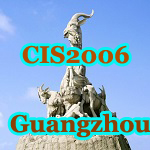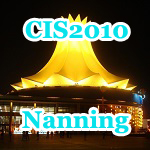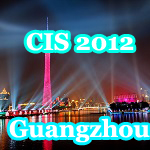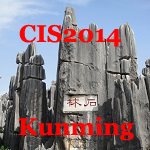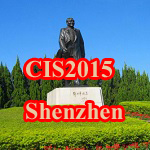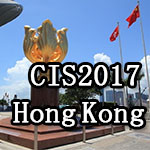The 14th International Conference on Computational Intelligence and Security
Hangzhou, China
November 16-19, 2018
The 14th International Conference on Computational Intelligence and Security
Hangzhou, China
November 16-19, 2018
The 14th International Conference on Computational Intelligence and Security
Hangzhou, China
November 16-19, 2018
The 14th International Conference on Computational Intelligence and Security
Hangzhou, China
November 16-19, 2018
Keynote Speakers
|
Topic 1: 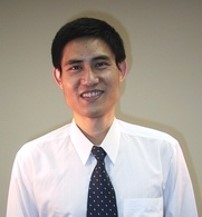
Unification of Deep Learning and Reasoning Dapeng Oliver Wu Fellow, IEEE Professor of Electrical & Computer Engineering University of Florida, USA. |
Abstract: While deep learning has achieved a huge success in various learning problems, the current models are still far away from replicating many functions that a normal human brain can do. Memorization based deep architecture have been recently proposed with the objective to learn and predict better. In this talk, I will present a model that involves a primary learner with an adjacent structured memory bank which can not only predict the output from a given input but also relate it to all its past memorized instances and help in its creative understanding. This paper presents a spatially forked deep learning architecture that can even predict and reason about the nature of an input belonging to a category never seen in the training data by relating it with the memorized past representations at the higher layers. Characterizing images of unseen geometrical figures is used as an example to showcase the operational success of the proposed framework.
Biography: Dapeng Oliver Wu received Ph.D. in Electrical and Computer Engineering from Carnegie Mellon University, Pittsburgh, PA, in 2003. Since 2003, he has been on the faculty of Electrical and Computer Engineering Department at University of Florida, Gainesville, FL, where he is currently Professor. His research interests are in the areas of networking, communications, video coding, image processing, computer vision, signal processing, and machine learning.
He received University of Florida Term Professorship Award in 2017, University of Florida Research Foundation Professorship Award in 2009, AFOSR Young Investigator Program (YIP) Award in 2009, ONR Young Investigator Program (YIP) Award in 2008, NSF CAREER award in 2007, the IEEE Circuits and Systems for Video Technology (CSVT) Transactions Best Paper Award for Year 2001, the Best Paper Award in GLOBECOM 2011, and the Best Paper Award in QShine 2006. Currently, he serves as Editor-in-Chief of IEEE Transactions on Network Science and Engineering, and Associate Editor of IEEE Transactions on Communications, IEEE Transactions on Signal and Information Processing over Networks, and IEEE Signal Processing Magazine. He was the founding Editor-in-Chief of Journal of Advances in Multimedia between 2006 and 2008, and an Associate Editor for IEEE Transactions on Circuits and Systems for Video Technology, IEEE Transactions on Wireless Communications and IEEE Transactions on Vehicular Technology. He has served as Technical Program Committee (TPC) Chair for IEEE INFOCOM 2012. He was elected as a Distinguished Lecturer by IEEE Vehicular Technology Society in 2016. He is an IEEE Fellow.
|
Topic 2: 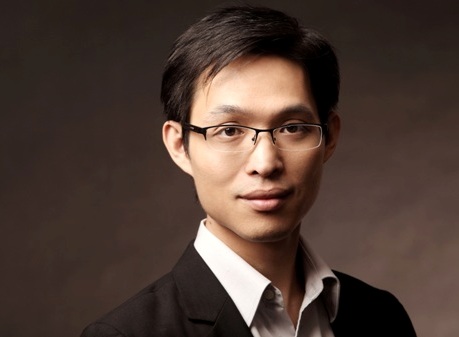
Machine Learning for Cybersecurity and Smart Nation Applications Steven Hoi School of Information Systems Singapore Management University (SMU) Singapore |
Abstract: In this talk, I will first give an overview of our research projects in the context of cybersecurity and smart nation applications and introduce the opportunities and challenges of machine learning research. I will then present some example projects in cybersecurity and smart nation (such as malicious ULR detection, healthy diet and smart food consumption), and demonstrate how the state-of-the-art deep learning technique can be applied to tackle the practical challenges in the real-world projects. I will then discuss the limitations of traditional machine learning and deep learning methodologies, and finally highlight some frontier research topics of emerging machine learning beyond traditional deep learning approaches.
Biography: Dr. Steven Hoi is currently Associate Professor in the School of Information Systems (SIS), Singapore Management University (SMU). Prior to joining SMU, he was a tenured Associate Professor at the School of Computer Engineering of Nanyang Technological University (NTU), Singapore. He received his Bachelor degree from Tsinghua University, and his Master and Ph.D degrees from the Chinese University of Hong Kong. His research interests include machine learning (online learning, deep learning, and beyond) with application to big data analytics across various real-world applications, including multimedia retrieval, computer vision and pattern recognition, cybersecurity, web search and information retrieval, social media analytics, computational finance, mobile and software mining, healthcare, etc. He has published 200+ papers in top conferences and premier journals, and served as an organizer, area chair, senior PC, TPC member, editor and referee for many top conferences and premier journals. He was the recipients of the Lee Kuan Yew Fellowship and the Lee Kong Chian Fellowship awards for Research Excellence. He is the Editor-in-Chief of Neurocomputing journal.
|
Topic 3: 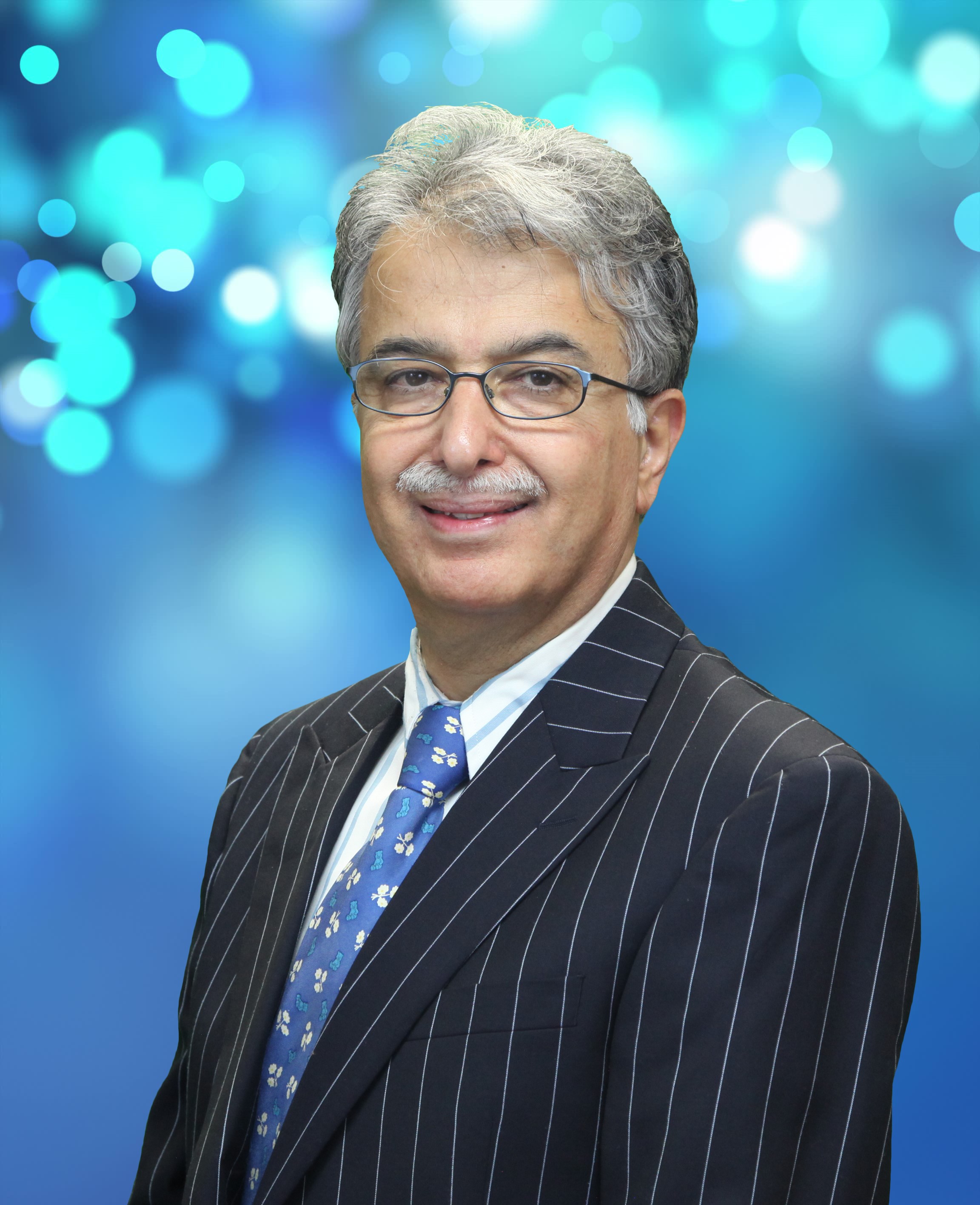
On Recent Advances in Machine Learning and Classification Algorithms Hojjat Adeli Fellow of AAAS, IEEE, AIMBE, and American Neurological Association Emeritus Academy Professor of Ohio State University, USA |
Biography: Hojjat Adeli received his Ph.D. from Stanford University in 1976 at the age of 26. He is currently an emeritus Academy Professor at The Ohio State University where he held the Abba G. Lichtenstein Professorship for ten years. He has authored over 600 research and scientific publications in various fields of computer science, engineering, applied mathematics, and medicine, including 16 ground-breaking high-technology books, and holds a United States patent in the area of design optimization. He is the Founder and Editor-in-Chief of the international research journals Computer-Aided Civil and Infrastructure Engineering and Integrated Computer-Aided Engineering. He is also the Editor-in-Chief of International Journal of Neural Systems. He is the recipient of 55 awards and honors including an Honorary Doctorate. In 1998 he received the Distinguished Scholar Award, from The Ohio State University’s highest research award “in recognition of extraordinary accomplishment in research and scholarship”. In 2010, he was profiled as an Engineering Legend in the ASCE journal of Leadership and Management in Engineering. He has served on the editorial board of 142 journals and presented 111 Keynote/Plenary Lectures at conferences held in 44 different countries. He has served as Honorary Chair or member of the organizing/scientific board of nearly 400 conferences held in 64 different countries. He is a corresponding member of the Spanish Royal Academy of Engineering, a foreign member of Lithuanian Academy of Sciences and Polish Academy of Science, a Distinguished Member of ASCE, and a Fellow of AAAS, IEEE, AIMBE, and American Neurological Association. He is a Clarivate Analytics Highly Cited Researcher in two categories of Computer Science and Engineering.
|
Topic 4: 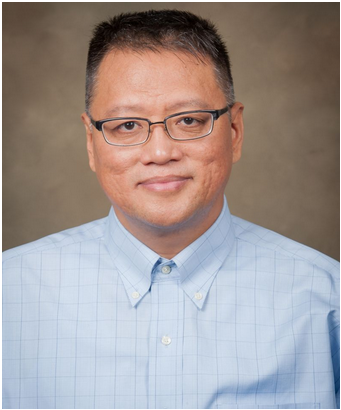
Monitoring Systems and the Internet Prof. Yang Xiao Professor of Department of Computer Science, The University of Alabama, USA. |
Abstract: Accountability implies that any entity should be held responsible for its own specific action or behavior so that the entity is part of larger chains of accountability. One of the goals of accountability is that once an event has transpired, the events that took place are traceable so that the causes can be determined afterward. The poor accountability provided by today’s computers and networks wastes a great deal of money and effort. This is due to the simple fact that today’s computing and network infrastructure was not built with accountability in mind. In this talk we introduce our previous work: accountable logging methodology called flow-net. We apply this methodology to many applications ranging from operating system design to computer networks.
Biography: Dr. Yang Xiao currently is a Professor of Department of Computer Science at the University of Alabama, Tuscaloosa, AL, USA. His current research interests include Cyber Physical Systems, Internet of Things, Security, Wired/Wireless Networks, Smart Grid, and Telemedicine. He has published over 200 journal papers and over 200 conference papers. Dr. Xiao was a Voting Member of IEEE 802.11 Working Group from 2001 to 2004, involving IEEE 802.11 (WIFI) standardization work. He is a Fellow of IET. He currently serves as Editor-in-Chief for Cyber-Physical Systems (Journal), International Journal of Security and Networks, International Journal of Sensor Networks, and Journal of Communications. He had (s) been an Editorial Board or Associate Editor for 20 international journals. He served (s) as a Guest Editor for over 20 times for different international journals.
|
|



